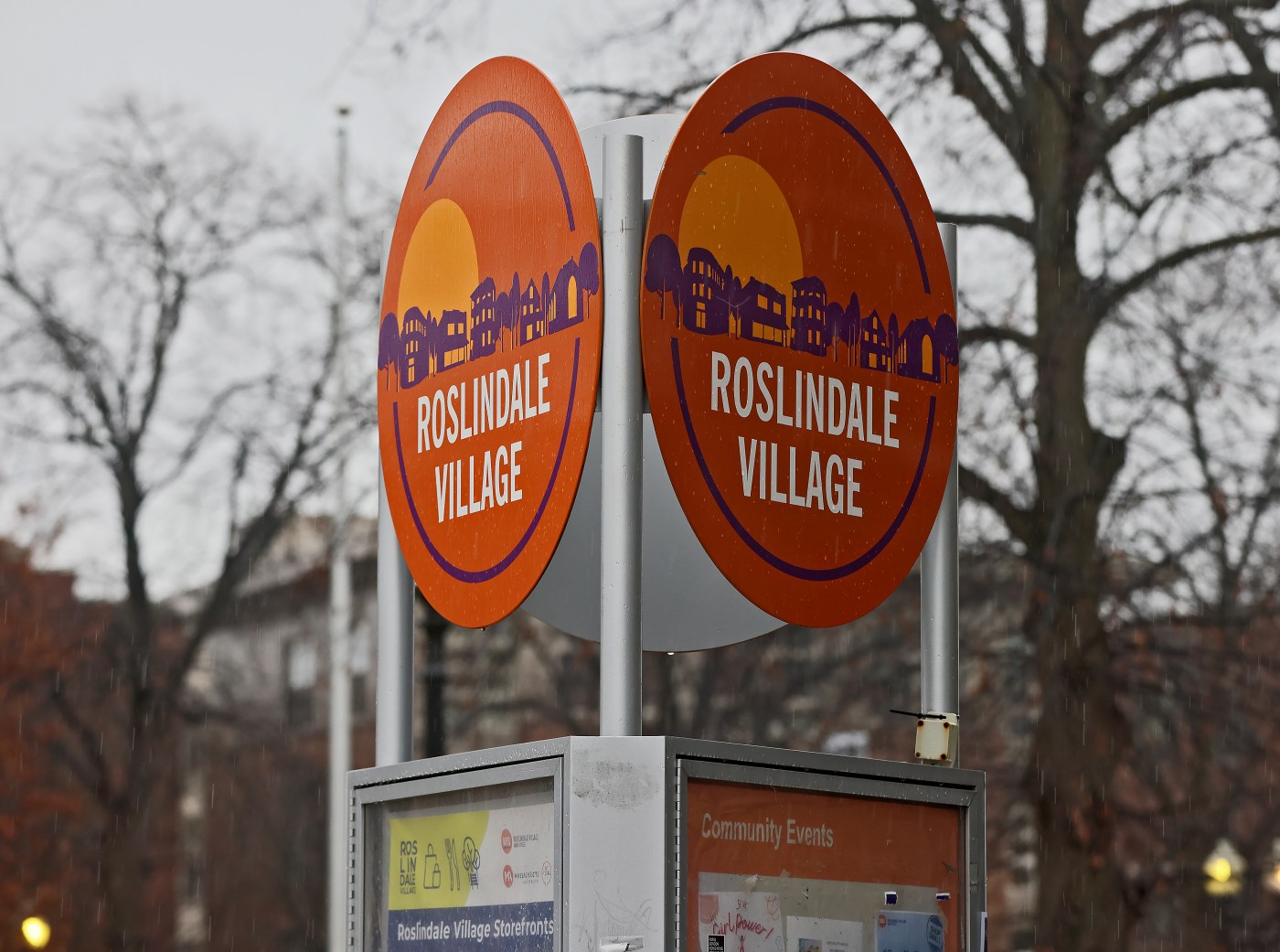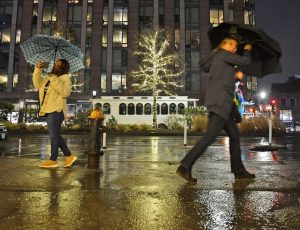
Roslindale parking policies in play
A Boston transportation official has concerns about the precedent that could be set if Roslindale Village implemented a parking benefit district, a concept that directs a portion of parking meter fees back into neighborhood improvements.
City Councilor Ricardo Arroyo, in the last month of his tenure, put forth the proposal for the pilot to be inserted in the busy commercial area in his district to help it fund beautification projects and other efforts.
If the pilot program is established, it could then be implemented in other districts, according to Arroyo, who learned of the concept from Roslindale Village Main Streets representatives.
Parking benefit districts capture a portion of meter revenue that can then either be reinvested in the area the meters are located, or consolidated and distributed equally to all districts, said Matt Warfield, Boston Transportation Department’s director of new mobility and curb management.
For districts to work on their own, meter fees need to be high enough to generate revenue beyond cost to run the meters, Warfield said during a hearing Thursday. The vast majority of the city’s parking revenue comes from Downtown, Back Bay, South End and Beacon Hill neighborhoods, he said.
“Once the precedent is set for PBDs in the city, there will likely be demand from those neighborhoods to keep more of the parking money local,” Warfield said. “If we were to allow PBDs in these places, it would functionally concentrate money in our wealthiest neighborhoods instead of allowing it to be spent citywide.”
The districts have been “effectively utilized” by three other Massachusetts communities, Arlington, Brookline and Reading, “to manage parking supply and generate resources for commercial area improvements,” Arroyo said.
The bodies typically designated to manage the parking districts include main streets organizations, community planning groups and business improvement districts, Arroyo said. Districts are not necessary in every city neighborhood, including those that already have meters, like Back Bay and Seaport, he added.
“But there are places where the benefit of making sure those dollars stay in those communities goes a lot further,” Arroyo said. “This is seeking more so to ensure that the dollars that get collected from residents in my district then get used in the place that those fees were collected.”
City transportation will soon be adding roughly 120 parking meter spaces that will be in effect Monday through Saturday 8 a.m. to 6 p.m. in Roslindale. The intent is to set a low per-hour meter rate to encourage parking turnover and to limit economic impact on visitors, Warfield said.
Data collected during an October 2021 parking study in Roslindale showed there was not a lack of parking, contrary to the community’s belief, Warfield said. Rather, the issue was with how parking was being used, with vehicles taking up spaces for upwards of six hours, he said.
Warfield highlighted how recent city investments in Roslindale have included the addition of crosswalks, increasing visibility of intersections, bus stop enhancements, and bus and bike lanes, among others.
“The cost of these projects is exponentially more than what could be generated through a PBD,” he said, “and diverting meter revenue into local PBD control would reduce our ability to invest in projects like these citywide.”
Anna VanRemoortel, executive director of Roslindale Village Main Street, said her organization is not advocating for higher meter fees to fund specific projects or for the revenue to go into operational costs.
Community needs that could be met if the area piloted a district, she said, include trash collection, beautification, power washing, green space improvements, and decorations to make it look more like a “unified retail shopping district.”
“The two options I see here are either the money goes into a parking meter fund at City Hall,” VanRemoortel said, “or we have this opportunity to keep it in our community, and explore a really cool and new opportunity to support neighborhoods across Boston.”
City Councilor Ricardo Arroyo (Staff Photo By Stuart Cahill/Boston Herald, File)

